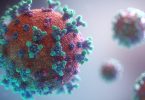By Zoe Allen, Toni Baraga, Ryan Noel, Sarah Readdean and Luwa Yin
Boston University News Service
The COVID-19 vaccine has proven effective in preventing severe symptoms of disease. However, multiple studies have shown that protection against infection and mild symptoms may decrease over time, especially among certain populations.
A COVID-19 booster shot increases an individual’s immune response and provides better protection against the virus, including the highly contagious Delta variant.
The U.S. Food and Drug Administration approved a single dose booster shot of the Pfizer-BioNTech COVID-19 vaccine in September. On Oct. 20, the FDA approved the Moderna and Johnson & Johnson/Janssen booster shots after the FDA’s advisory panel voted in support of the development of those booster shots on Oct. 15.
Anthony Fauci, director of the National Institute of Allergy and Infectious Diseases, said a boost will be a part of the “optimal regimen” for COVID-19 vaccinations.
What is a booster shot?
According to Yale Medicine, a booster shot is an extra dose of a vaccine administered after a fully vaccinated individual’s immunity decreases over time.
“The hope is that by giving the booster, it’s going to lead to this big intense response that will lead to longer term protection,” said Davidson Hamer, an infectious disease specialist and member of Boston University’s National Emerging Infectious Diseases Laboratories and the Precision Diagnostics Center.
A booster shot is distinct from a third vaccine shot, however.
“The third shot has been given to people who might not have responded to the initial [vaccine] series,” Hamer said.
“Individuals with underlying diseases or taking medications that interfere with their normal immune response, there’s evidence that some of those groups did not respond so well so they needed an extra dose of the vaccine just to get to where everybody else was after the primary series.”
Hamer said a booster shot is different because it is distributed to individuals in order to boost the effectiveness of the vaccine after immunity levels start to wane, typically months later.
Booster shots are not a novel concept. Most individuals routinely receive a booster shot for tetanus, diphtheria and pertussis, also known as the Tdap booster, which is recommended every 10 years.
Breakdown of the Shots
Pfizer-BioNTech
The Pfizer-BioNTech COVID-19 vaccine, a two-shot-series messenger-RNA vaccine, has been available under emergency use authorization since Dec. 11, 2020, and was approved by the FDA on Aug. 23.
The FDA authorized use of the Pfizer-BioNTech as a single booster shot on Sept. 22. Under FDA and Centers for Disease Control and Prevention guidelines, the booster shot may be given only to individuals who completed their first series with the Pfizer vaccine. The booster shot may be administered to these individuals at least six months after becoming fully vaccinated.
The Pfizer booster shot is currently recommended to the following groups by the CDC:
- 65+
- 18+ who live in long-term care settings
- 18+ who have underlying medical conditions
- 18+ who work in high-risk settings
- 18+ who live in high-risk settings
Although individuals aged 18-49 with underlying medical conditions or who live or work in a high-risk setting are eligible to receive the booster shot, the individual should consider their personal benefits and risks to receiving the shot.
Additional populations may be added to the list of those recommended for the booster as more data becomes available. At this time, those who do not fall into the above categories are not eligible to receive a Pfizer booster shot.
Occupations considered by the CDC as higher risk for COVID-19 exposure and transmission are:
- First responders (healthcare workers, firefighters, police, congregate care staff)
- Education staff (teachers, support staff, daycare workers)
- Food and agriculture workers
- Manufacturing workers
- Corrections workers
- U.S. Postal Service workers
- Public transit workers
- Grocery store workers
On Oct. 20, the FDA authorized the use of “mix-and-match” vaccine boosters from different brands for individuals who completed their primary vaccination process with any authorized COVID-19 vaccine.
Moderna
Similar to the Pfizer vaccine, Moderna’s COVID‑19 vaccine is an mRNA vaccine. According to the Cambridge-based company’s website, the vaccine provides instructions for cells to develop harmless spike proteins using mRNA, rather than the inactivated virus, to help build up antibodies that can detect and fight against COVID-19.
Clinical trials have shown Moderna’s vaccine is 94.1% effective at preventing “laboratory-confirmed COVID-19 infection” in people aged 18 and older, who “received two doses and had no evidence of being previously infected.”
On Dec. 18, 2020, the FDA authorized the vaccine for distribution and use under an Emergency Use Authorization (EUA) for individuals 18 years of age or older.
Moderna’s vaccine originally had two shots, which should be 28 days apart, according to the CDC. The FDA approved a third dose in certain immunocompromised individuals on Aug. 12.
On Oct. 14, the FDA held Vaccines and Related Biological Products Advisory Committee meetings to discuss the use of booster doses of the Moderna vaccine.
The advisory committee unanimously recommended the EUA for a booster shot for certain populations. According to Moderna’s website, this includes:
- 65+
- 18+ who are at high risk of severe COVID-19
- 18+ who have been exposed to COVID-19 with risk for complications of COVID-19 and other severe illness
The booster shot should be administered at least six months after the primary doses.
Johnson & Johnson
Johnson & Johnson initially began distributing their single dose COVID-19 vaccine on March 3, 2020. Unlike the Moderna and Pfizer mRNA vaccine, J&J’s viral vector vaccine only requires recipients to receive one shot. The vaccine was approved by the FDA through an EUA.
J&J has been conducting studies to test its vaccine’s effectiveness against the highly transmissible Delta variant. J&J’s Phase 3 ENSEMBLE 2 study found that a booster dose at two months provided 94% more protection against symptomatic (moderate to severe/critical) COVID-19 in the U.S.
The company’s vaccine was met with much controversy. The distribution of the vaccine was temporarily stopped on April 13, 2020, due to the development of blood clots in certain individuals after receiving the vaccine. According to the CDC, the clotting occurred primarily in women under the age of 50.
J&J also conducted a large real-world evidence study from March to July 31, which was recently extended until Aug. 31. This study proved that the single-dose vaccine was consistently effective over the six-month duration, even with the Delta variant. The data also showed an effectiveness of 76% for COVID-19 related infections and 84% for COVID-19-related hospitalizations over the six-month period.
The 15 million Americans who received the J&J vaccine are now eligible to receive a booster shot. J&J met on Oct. 15 with the FDA Vaccines and Related Biological Products Advisory Committee, who unanimously voted 19-0 in favor of recommending the EUA for a J&J booster shot. Those 18 years and older are able to receive the J&J booster two months after the initial vaccine.
Who is Eligible for a Booster
The FDA’s approval of Pfizer vaccine booster shots left those who got Moderna and J&J vaccines frustrated because the “mix-and-match” was not originally recommended, according to the CDC.
Now, according to Peter Marks, director of the FDA’s Center for Biologics Evaluation and Research, the FDA is taking action to “include the use of mix-and-match boosters to address this public health need.”
According to a study funded by the National Institute of Health, which was preprinted (meaning it was not peer reviewed) on Oct. 13, people who originally received mRNA vaccines from Pfizer or Moderna had similar immune responses after they had mRMA booster shots, no matter what companies they originated from.
The study also suggests that compared to a J&J booster, an mRNA booster may be more effective for people who received J&J vaccines, which is a viral vector vaccine.
Marks noted in an Oct. 5 webinar that some data suggests everyone 18 and older should be made eligible for a booster shot. Official guidance has not been made, so individuals should familiarize themselves with the eligibility requirements of the brand they intend to receive for their COVID-19 booster shot.





